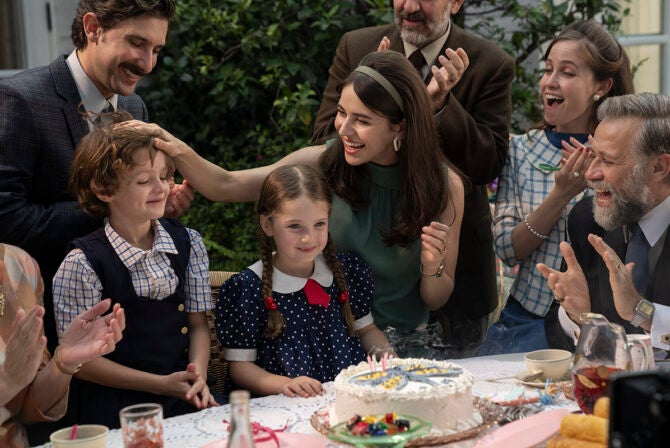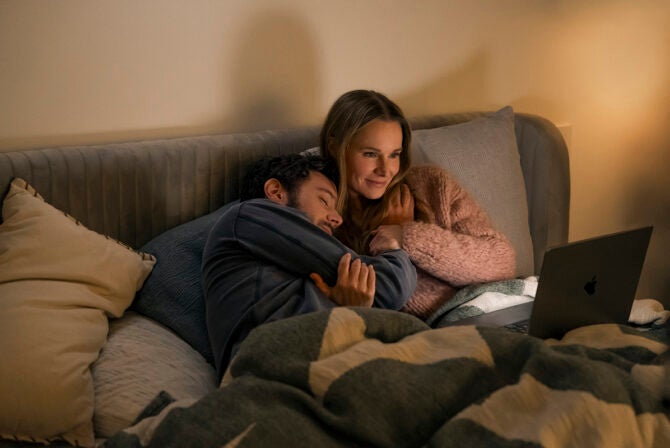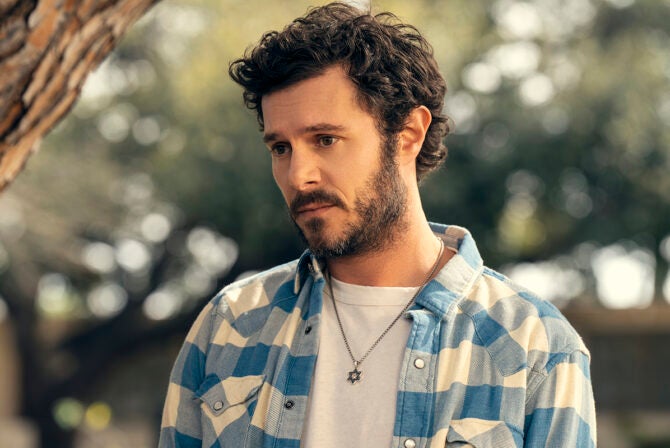Thanks — or no thanks — to Facebook’s “On This Day” feature, every day this past month, I’ve been reminded of memories that go straight from my computer screen to a pit in my stomach.
On this day last year, I was at the Hillary for America campaign headquarters in Manchester, New Hampshire, picking up a canvassing packet.
On this day last year, I was with my 6-year-old daughter, waiting in line for four hours to see Hillary and Elizabeth Warren.
And then one I woke up today:
On this day last year, I took my daughter to vote for Hillary Clinton for President of the United States.
I know I will look at the photo and remember the feeling of pride, accomplishment and excitement for what was to come. I also imagine I will want to reach into that photograph, grab and shake my own shoulders and tell myself to enjoy that last breath of hope, because tomorrow is the start of a long period of darkness.
As we approach the anniversary of the election, I’ve been reflecting on how much has changed since those hopeful and exciting days that keep popping up in my News Feed. Even though the High Holidays have been over for a few weeks now, I keep thinking about how the days after the election mirror them, from Rosh Hashana to Yom Kippur, from Sukkot to Simchat Torah.
On Rosh Hashanah, the Jewish tradition encourages us to reflect on our past year not nostalgically but proactively. Eating apples and honey reminds us to embrace the goodness in our lives while thinking about a plan for how we will keep moving toward the goal of tikkun olam, repairing the world in the next year.
I spent months after the election reflecting on all that had happened in the past year. I know I was not alone in asking: How did this happen? But I also quickly turned to making a plan for how I was going to survive (and hopefully thrive) in the next few years. That plan started with the simple act of reaching out to friends who were also struggling with the results of the election — particularly my Muslim, gay and African-American friends. My daughter had the right idea the morning after the election when she said to me, “Maybe another girl will run for President and we can campaign for her.”
A week after Rosh Hashanah comes Yom Kippur, the day on which we are supposed to abstain from pleasure and joy, in part so we can better imagine our own death. For me, the day after the election was like a second Yom Kippur. I walked around aimless, numb, tears streaming down my face, unable to eat or focus or enjoy anything. My daughter lost her first tooth on Nov. 9; I could barely smile at her joy.
After Yom Kippur, the emotional roller coaster that is the High Holidays takes another turn in the form of Sukkot. This is the holiday on which modern-day Jews build sukkahs, or temporary huts, just as their ancestors did when they were freed from slavery in Egypt and forced to wander in the desert for 40 years.
On Sukkot, I often think of a sermon from the rabbi at my childhood synagogue that invoked the Indigo Girls song “Hammer and Nail”:
Gotta get out of bed and get a hammer and a nail
Learn how to use my hands
Not just my head, I think myself into jail
Now I know a refuge never grows
From a chin in the hand
In a thoughtful pose.
Gotta tend the earth if you want a rose.
The song, he explained, gives us direction after the pensive and heady holidays of Rosh Hashanah and Yom Kippur, the holidays of “chin in the hand in a thoughtful pose.” Sukkot is when you stop thinking and start acting. You do something, build something — literally.
On Sukkot, we swing into action. After the election — as soon as I snapped out of my zombie-like state, so did I.
I set up monthly donations to progressive organizations that are important to me, including the ACLU, Everytown for Gun Safety, ADL, HIAS and Indivisible. I started writing, calling, faxing, and texting members of Congress every day using ResistBot. I marched and protested for women, for science and for immigrants, and against racism, anti-Semitism and tax cuts for the rich. I bought my kids diverse children’s books about feminist, African-American and immigrant heroes. I put a “Hate Has No Home” sign on my lawn. I joined the Human Rights Commission in my town. I ran for public office and won.
The last of the High Holidays is Simchat Torah, a day of uncomplicated celebration upon the completion of reading the entire Torah. Jews often take to the streets, bringing the Torah out of the ark and carrying it around in celebration of this accomplishment. And then we roll back the Torah and start reading from the beginning again. The work continues.
In reflecting on the past year and the lead-up to the anniversary of the election, I realized that for me, much of this year has been like Sukkot — only a lot less fun. It has been action-packed, physically and emotionally draining.
Unlike Sukkot, it no longer feels temporary; I often feel like I am stuck in it, in constant action mode, though now much more tired and beaten down from the long haul of it. I feel as if I’ve been sitting in the sukkah in the rain and the wind, exposed to the elements —the onslaught of hateful policies and people — for a whole year now with no place to turn to dry off and recover.
I am settling in for a sustained period of feeling unsafe and unprotected, inviting friends and neighbors in for support and strength when I need it, raising our signs of protest high above our heads, like we are shaking the lulav up at God.
Last night, on the anniversary of the 2016 election, as the results of yesterday’s election rolled in, there were hopeful signs that our Simchat Torah is on the horizon. Across the country, we elected new legislators, governors, mayors who are transgender, African-American, Asian, gay, Sikh, and female. Maybe after we have reflected and mourned, taken action, built and sought shelter, we will finally get to celebrate our accomplishments by dancing and singing in the streets.







